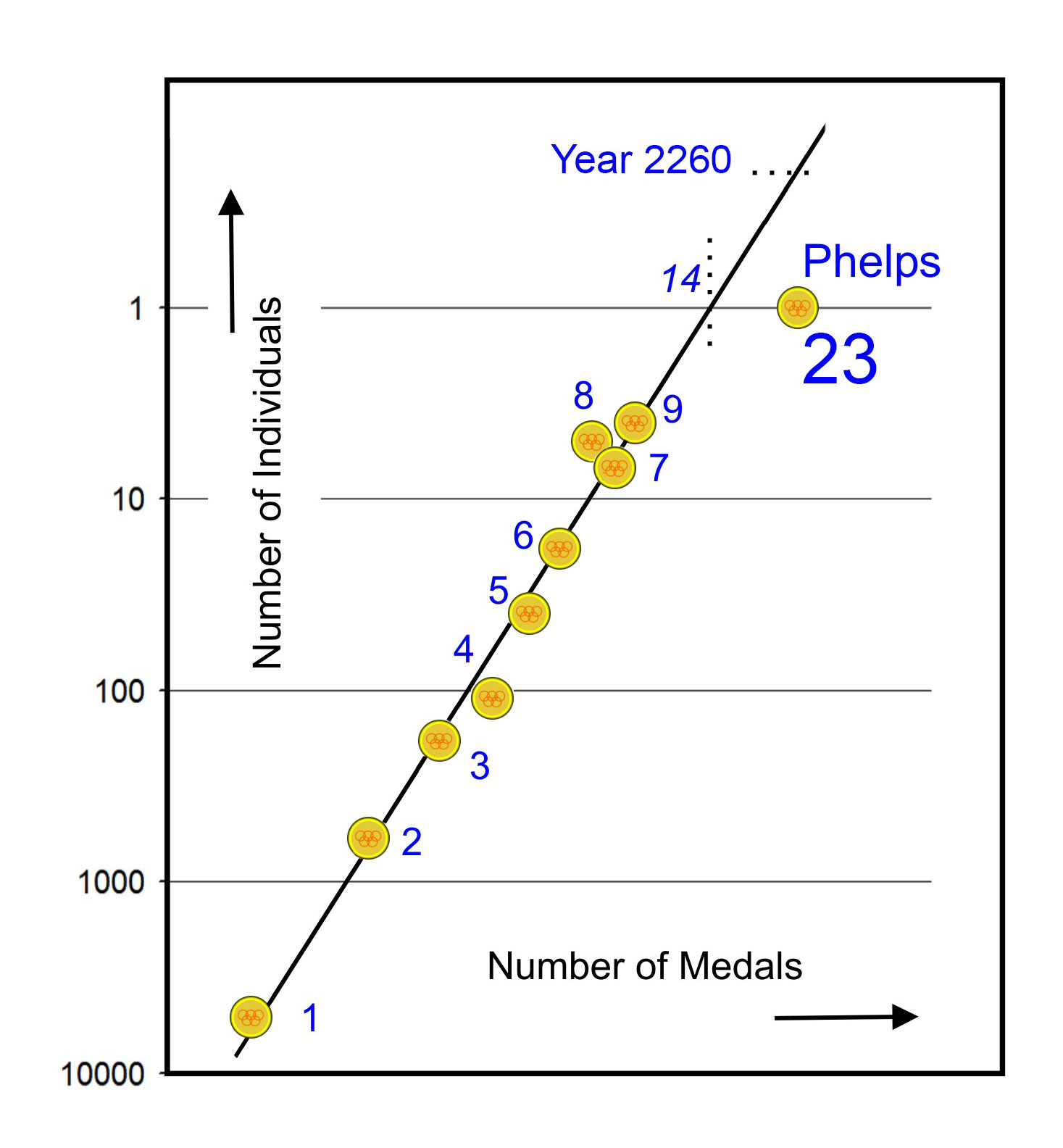23 Gold Medals: Is Michael Phelps an Outlier?


Since the start of the modern Olympic Games in 1896, about one person in 2 million has won an Olympic gold medal. Michael Phelps now has 23 of them — more than double the number of gold medals won by any other individual in the history of the games.
This achievement seems superhuman, but just how out-of-the-ordinary is Phelps?
To find out, we can turn to a simple law of statistics. This basic math shows that Phelps' gold-medal count is so sky-high, it wouldn't have been predicted to occur, at least not for another 250 years. [The Science of Olympic Rivalries: Do Adversaries Help or Hurt?]
In the natural world, it has long been recognized that phenomena that vary over a wide range of values follow a remarkably simple pattern. Considering the size of earthquakes, for example, we know that there are numerous small temblors every day, with larger quakes being increasingly rare. Similarly, the size of meteor strikes, terrorist attacks and even the popularity of different websites follow a pattern where the biggest numbers rapidly become increasingly scarce. The amazing thing about these seemingly random events is that their rarity or frequency follows what is known as a power law distribution, a simple mathematical form that gives a straight line graph when plotted in a certain way. Even the popularity of words used in the English language follows such a "rule."
So what does this have to do with Phelps and the list of multiple-gold-medal winners? A plot of the individuals who have won different numbers of gold medals in this way reveals this same power law distribution. Though nearly 6,000 people have won a single gold medal, fewer than 200 have won exactly three, and only four have won nine gold medals during their Olympic careers. Phelps is the only athlete to reach double figures.
A graph of the logarithm of both the number of people and the number of medals yields a relatively straight line — except for the 23 held by Phelps. That number is far to the right of the line, meaning that the number of medals is much greater than expected. In fact, the line crosses the "one individual" level at about 14, which would be about what we might expect based only on the medal counts of all other individuals.
Exactly how special is Phelps' achievement? The graph suggests we'd need to wait until almost five times as many medals have been awarded before we would reasonably expect someone to reach a total of 23. At the present rate of about 100 gold medals per year (average of Summer Games and Winter Games), we would need to wait about another 250 years to reach this mark — beyond 2260!
Get the world’s most fascinating discoveries delivered straight to your inbox.
If anyone ever matches or surpasses Phelps' haul, they will most likely come from swimming or gymnastics, where the structure of the competition is more favorable to multiple winners. In fact, 10 of the 17 athletes who have won seven or more gold medals were either gymnasts or swimmers. In team sports such as soccer, one medal per Olympiad is all that is possible, while even in track and field, four medals in a single Olympics is a practical maximum, with Carl Lewis leading the pack with nine gold medals over four Olympics.
Charles Rettner is a research scientist at IBM, where he works on different aspects of chemistry, physics and engineering. His views do not represent those of his employer.
Follow all of the Expert Voices issues and debates — and become part of the discussion — on Facebook, Twitter and Google +. The views expressed are those of the author and do not necessarily reflect the views of the publisher. This version of the article was originally published on Live Science.



